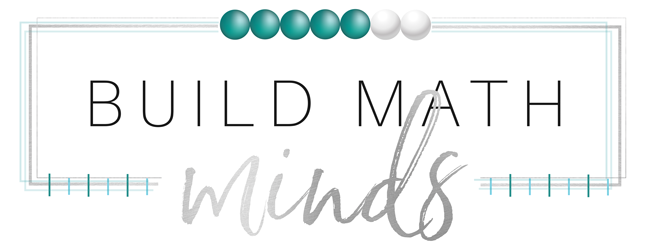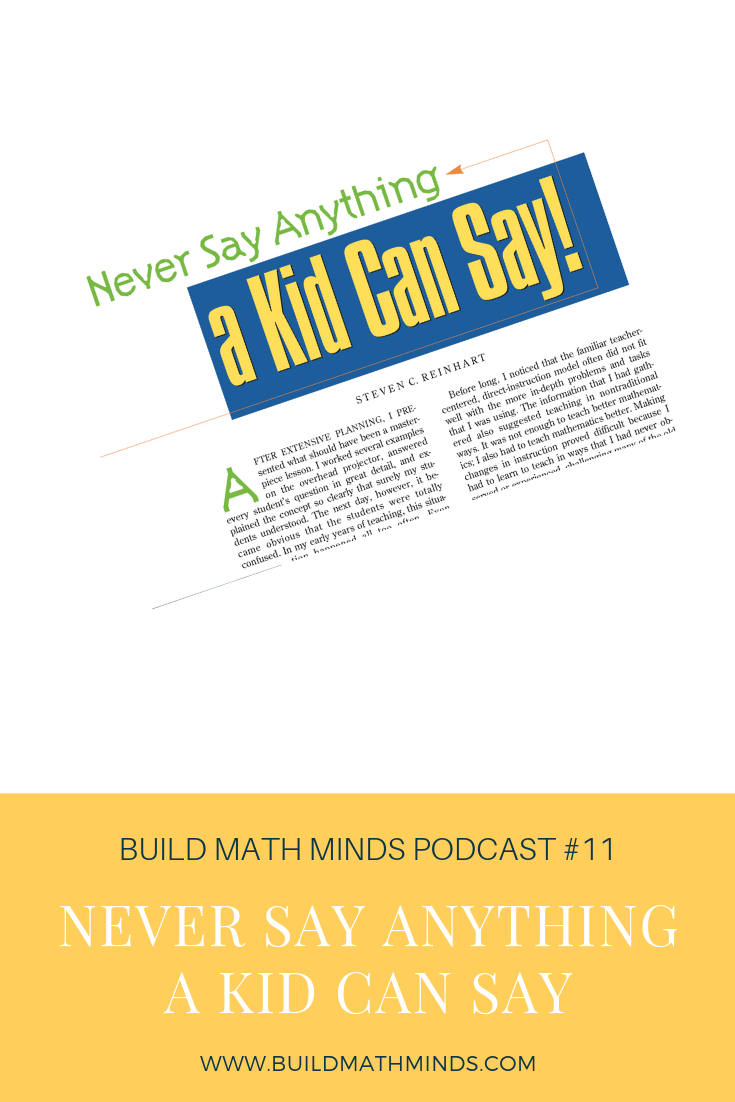Resources mentioned in this episode:
Never Say Anything A Kid Can Say by Steven Reinhart
Welcome fellow Recovering Traditionalists to Episode 11. Today we are talking about why we should never say anything a kid can say.
This week I’m talking about an article from Mathematics Teaching in the Middle School. It’s one of the journals you can choose to receive if you are a member of the National Council of Teachers of Mathematics. Which I highly recommend that you become a member if you aren’t already.
Today I’d like to talk about one of my favorite articles. It’s “Never Say Anything A Kid Can Say” by Steven Reinhart. It was published back in April of 2000. That’s over 19 years ago!! But the information in this article is so powerful and still so relevant. Normally, you have to be a member to access the articles but this article is available as a free download on their site.
In the beginning of this article he talks about his journey of transforming how he taught mathematics. He says:
“AT SOME POINT DURING THIS METAMORPHOSIS, I concluded that a fundamental flaw existed in my teaching methods. When I was in front of the class demonstrating and explaining, I was learning a great deal, but many of my students were not! Eventually, I concluded that if my students were to ever really learn mathematics, they would have to do the explaining, and I, the listening. My definition of a good teacher has since changed from ‘one who explains things so well that students understand’ to ‘one who gets students to explain things so well that they can be understood.’”
The remainder of the article goes on to discuss how he did that with middle schoolers. Now even though the article is about middle school students, the ideas still apply to helping kiddos in elementary get to a point where they explain things so well that they can be understood.
I really love that line.
We are constantly told in our pre-service education that it’s our job to explain things clearly to our students. But as we make this shift to a student-centered learning environment we have to step aside as the Keeper of Knowledge and allow our students to share their thinking, their understandings, their misconceptions, in order for true learning to happen.
However, it is not an easy change to make. In the article, Steven gives lots of practical ideas about how to make that change. One of which is the advice to Never Say Anything A Kid Can Say.
I think this article should be mandatory reading for any math teacher no matter what grade you teach.
Subscribe and Review in iTunes
Hey, are you subscribed to the Build Math Minds Podcast, yet? If you’re not, make sure to do that today because I don’t want you to miss any episodes! Click here to subscribe to the podcast in iTunes.
While you’re there, don’t forget to leave a review on iTunes too. I would love to know your thoughts and how we can make sure that we give you content that you will really enjoy.
To leave a review, head over to iTunes and click on “Ratings and Reviews” and “Write a Review.” I can’t wait to hear your thoughts about the podcast.




